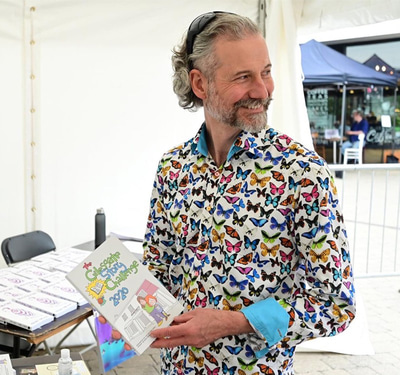- OT
- Life in practice
- Business management
- “The first step I took was to start asking the questions”
Perspectives
“The first step I took was to start asking the questions”
Optometrist and independent practice owner, Simon Berry, talks to OT about his business’ sustainability credentials
4 min read

Getty/Malte Mueller

Simon Berry
27 August 2022
It wasn’t a conscious decision when I started on my practice’s sustainability journey. As an independent opticians, almost by definition we buy and sell products, and if we sell a particular product or frame, I feel that we are endorsing it. Therefore, from the very beginning I wanted to do my best to source products that were manufactured in the most sustainable and ethical ways.
Everyone had different responses. I remember one company, called Zeal, that was really helpful – they even went back to the farmers where the castor plants are farmed for the oil used in the process of making the frame. However, mostly I was met with blank looks. The reps were from distributors and were so far removed from the manufacturing process, finding the information just wasn’t possible.
Initially it was just about finding out the information. Sharing it with patients came a lot later when, in 2016, I developed a questionnaire for all manufacturers so I could share the answers with consumers and see what their reaction was. Today we ask 10 questions around 10 different areas of sustainability and how the product is made. We use the answers to grade the product as to how sustainable or ethical we feel it is.
The results from the questionnaire are published on our website, and when we are talking about frame choice with patients we are able to reference that information.
I give the questionnaire to every new manufacturer; if they don’t answer the questions or are unsure about some of the answers, then it is not something we stock.
Sustainability and patients
Nowadays I feel that being sustainable is a commodity; everyone is talking about it. Everybody has a sustainable claim. Whether those claims are genuine or not is another thing, but everyone now claims their product is sustainable and ethical.One of the difficulties opticians have with sustainability is knowing which patients are bothered about it. For a wide range of reasons there are still people who are not bothered about where a product comes from and what it is made of. However, I have certainly had experiences where I haven’t mentioned sustainability to a patient and they have come back later and asked about it.

Simon Berry
I gave the same questionnaire to the opticians at the conference to try and compare answers, and it had some interesting results. One of the questions I asked was, ‘Would you pay more for a guaranteed sustainable frame?’ Around 70–80% of patients said they would, while opticians said they would take less profit from a sustainable frame.
Furthermore, most patients and opticians felt that it was the manufacturer’s responsibility rather than the opticians to look at sustainable issues.
I feel that one of the biggest plastic waste issues in optics is to do with demo lenses. When I surveyed opticians, another question I asked was ‘Do you think patients are bothered by demo lenses?’ to which 80% felt patients valued having demo lenses. However, when I asked my patients if they wanted demo lenses, just 10% said they did. This highlights quite a mismatch in expectations – I don’t think patients want demo lenses and I don’t know why we are using them, so why don’t we just stop?
A sustainable business
Whilst my practice’s sustainability journey began with the products, this has evolved over the years and we have done a number of things in practice also. We use a green company for our energy now, we have changed some of the windows in the practice so they are more energy efficient, we use TerraCycle to recycle frames, and we are certified as carbon neutral. Considering these things in practice is just as important as choosing sustainable products.Yet, there are still things that we can improve on: the practice still uses a traditional gas boiler, so it would be great to move to a more environmentally-friendly alternative, such as an air source pump, in the future.
My advice to business owners considering making sustainability changes to their practice would simply be to start. It doesn’t cost anything to start asking questions of manufacturers. Anyone is more than welcome to use my questionnaire, which can be downloaded from my practice’s website. I distribute Erin’s World frames and I have had the questionnaire presented back to me before, which was a really nice feeling.
Simon’s tips to getting started with sustainability in practice
- Start asking the questions about where products are made and from what
- Look at your energy use
- Make sure waste goes into the correct streams so as much of it is recycled as possible.
About the author
Simon Berry is an optometrist and independent practice owner of Simon Berry Optometrists in Durham, which celebrated its 20th anniversary in June.
- As told to Emily McCormick.
Advertisement

Comments (0)
You must be logged in to join the discussion. Log in